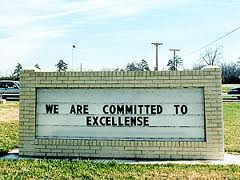We at Samuel Whitbread are trying to improve our students’ literacy by targeting their reading, writing and spelling across every subject. Every student will be learning reading strategies, writing techniques, as well as subject-specific terminology and advanced vocabulary to ensure the best possible chance of success in their GCSEs.
When we write we have to consider a number of aspects and make certain decisions. We need to know what the purpose of our writing is and for whom we are writing. We need to think about the content and what form our writing will take, for example, is it a science report, a history essay, a letter to a parent, or an email? We then need to think about the structure appropriate to the purpose and form of our writing, in addition to the use of sentences, paragraphs and punctuation.
We then select the vocabulary that will best convey our meaning.
And finally, we think about how to spell the words we write.
Children can find writing a real challenge; especially if they do not read at home for pleasure. They need encouragement, support and praise for their efforts. You can best support them by encouraging them to read and write on every possible occasion, praising their efforts and, importantly, by letting them see you reading and writing whenever possible. You can play word games with them (e.g. ‘Words with Friends’, Scrabble), you can discuss interesting or new words which you have read and you can compose emails/letters together. Why not have a family book club?
Most adults, even if we consider ourselves to be good spellers, make spelling mistakes at some point (especially English teachers). What is important is that we know what to do when we get stuck and we know how to correct our mistakes.
The English language is rich and complex; but, despite its difficulty, 85% of the English spelling system is predictable. Your child will learn the rules and conventions of the system and the spelling strategies needed to become a confident speller. Here are some of the strategies that will help your child become a confident and accurate speller:
- Sounding words out: breaking the word down into phonemes (c-a-t) – however, many complicated words cannot be sounded out so other strategies are needed;
- Dividing the word into syllables, say each syllable as they write the word ( re-mem-ber);
- Using the Look, say, cover, write, check strategy: look at the word and say it out aloud, then cover it, write it and check to see if it is correct. If not, highlight or underline the incorrect part and repeat the process;
- Using mnemonics as an aid to memorising a tricky word (rhythm: rhythm helps your two hips move);
- Finding words within words (lie in believe;
- Making connections between the meaning of words and their spelling (e.g. sign, signal, signature)
- Working out spelling rules for themselves – please see below;
- Having a dictionary on mobile phones and tablets.
Top Four Spelling Rules
1. Using I Before E
Use i before e, except after c, or when sounded as “a” as in “neighbour” and “weigh.”
EXAMPLES: believe, chief, piece, and thief; deceive, receive, weigh, and freight
COMMON EXCEPTIONS: efficient, weird, height, neither, ancient, caffeine, foreign
2. Dropping the Final E
Drop the final e before a suffix beginning with a vowel (a, e, i, o, u) but not before a suffix beginning with a consonant.
EXAMPLES:
ride + ing = riding
guide + ance = guidance
hope + ing = hoping
entire + ly = entirely
like + ness = likeness
arrange + ment = arrangement
COMMON EXCEPTIONS: truly, noticeable
3. Changing a Final Y to I
Change a final y to i before a suffix, unless the suffix begins with i.
EXAMPLES:
defy + ance = defiance
party + es = parties
pity + ful = pitiful
try + es = tries
try + ing = trying
copy + ing = copying
occupy + ing = occupying
COMMON EXCEPTIONS: journeying, memorize
4. Doubling a Final Consonant
Double a final single consonant before a suffix beginning with a vowel when both of these conditions exist:
(a) a single vowel precedes the consonant;
(b) the consonant ends an accented syllable or a one-syllable word.
EXAMPLES:
stop + ing = stopping
admit + ed = admitted
occur + ence = occurrence
stoop + ing = stooping
benefit + ed = benefited
delight + ful = delightful
For more spelling rules, please see here: http://oxforddictionaries.com/words/spelling-rules-and-tips
